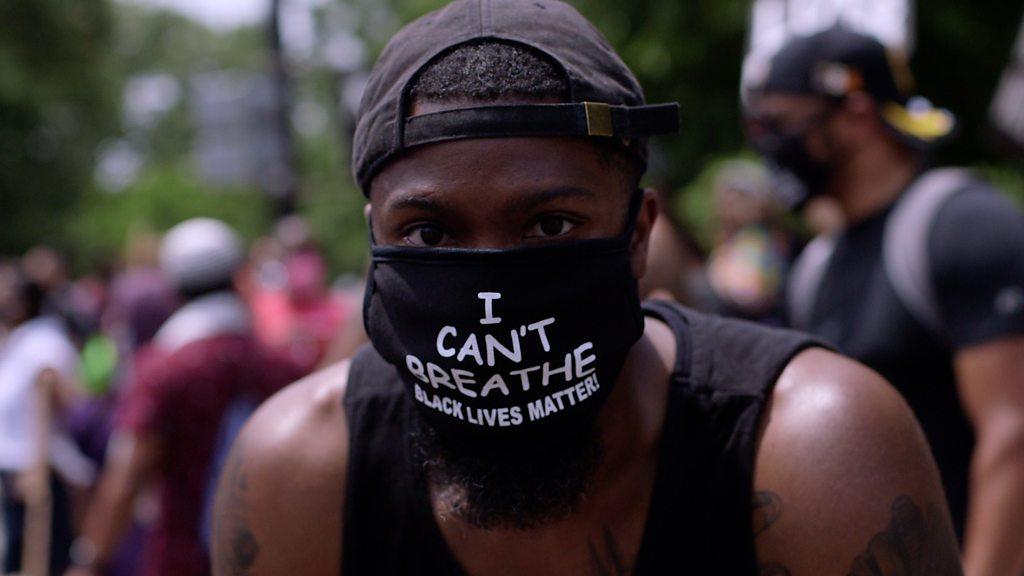Breonna Taylor case: Tapes of grand jury deliberations to be released
- Published
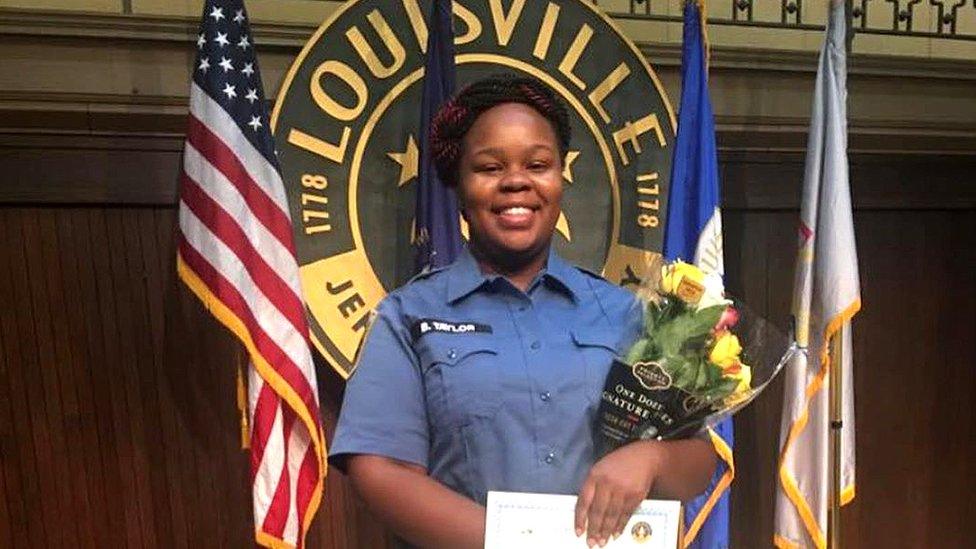
Breonna Taylor, 26, was an emergency medical technician
Tapes of the grand jury's deliberations in the case of a black American woman killed in a police operation at her home in Kentucky are to be made public.
Breonna Taylor's death in March has become a key issue in protests over police brutality and racism.
The jury decided no officers should be charged over her death. Its tapes are secret, but one juror sued for release.
Kentucky's attorney general said he was confident the tapes would show his team had presented a "thorough case".
Ms Taylor, an emergency medicine worker, was shot dead when officers stormed her Louisville home on 13 March. They were executing a search warrant as part of a drugs investigation, but no drugs were found in the property.
Last week one officer was charged with wanton endangerment for firing shots into an adjoining apartment, but no-one was charged in connection with Ms Taylor's death.
Her death and the subsequent decision not to charge any officer with murder or manslaughter have led to repeated Black Lives Matter protests in Louisville and elsewhere.
Why are the tapes being released?
Kentucky Attorney General Daniel Cameron said in a statement that although the grand jury was meant to be a secretive body, "it's apparent that the public interest in this case isn't going to allow that to happen".
Kentucky Attorney General Daniel Cameron presented the grand jury decision
He said he was complying with a judge's order "to release the recording on Wednesday".
Mr Cameron said: "Once the public listens to the recording, they will see that over the course of two-and-a-half-days, our team presented a thorough and complete case to the grand jury."
It follows a lawsuit by one member of the grand jury calling for the proceedings to be made public.
Protesters march in Louisville following the grand jury decision
The unnamed grand juror sued for release of the tapes after comments made in public by Mr Cameron following the jury's decisions.
The grand juror's lawsuit contests some of his statements, external and says the jurors were used as "a shield to deflect accountability and responsibility".
Breonna Taylor's family have also demanded the release of the tapes.
A statement from the family and their lawyers on Tuesday said the grand juror's actions supported their belief that Mr Cameron had misrepresented the jury's deliberations.
"We urge the attorney general to release a complete and unedited copy of the recording, along with any and all evidence," it read.
What did the jury decide?
Mr Cameron said he believed that evidence presented to the jury showed that officers Jonathan Mattingly and Myles Cosgrove were justified in opening fire because Kenneth Walker, Ms Taylor's boyfriend, had shot at them.
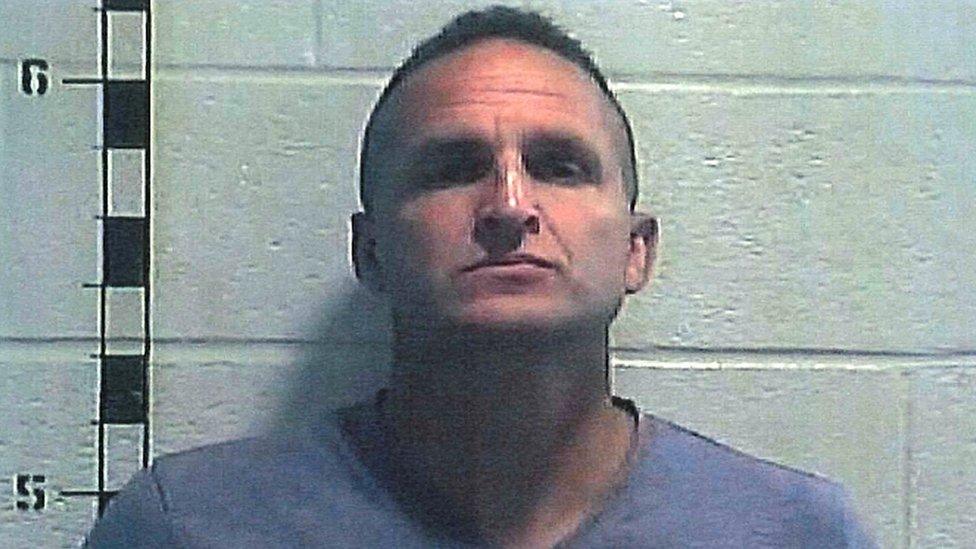
Brett Hankison was fired from the police service in June
He said: "For that reason, the only charge recommended was wanton endangerment."
Former detective Brett Hankison was charged on three counts and has pleaded not guilty.
Under Kentucky law, someone is guilty of wanton endangerment if they commit an act that shows "an extreme indifference to the value of human life".
"To be a black woman right now, it’s painful": Activist and businesswoman Yandy Smith-Harris reacts to the Breonna Taylor case
- Published23 September 2020
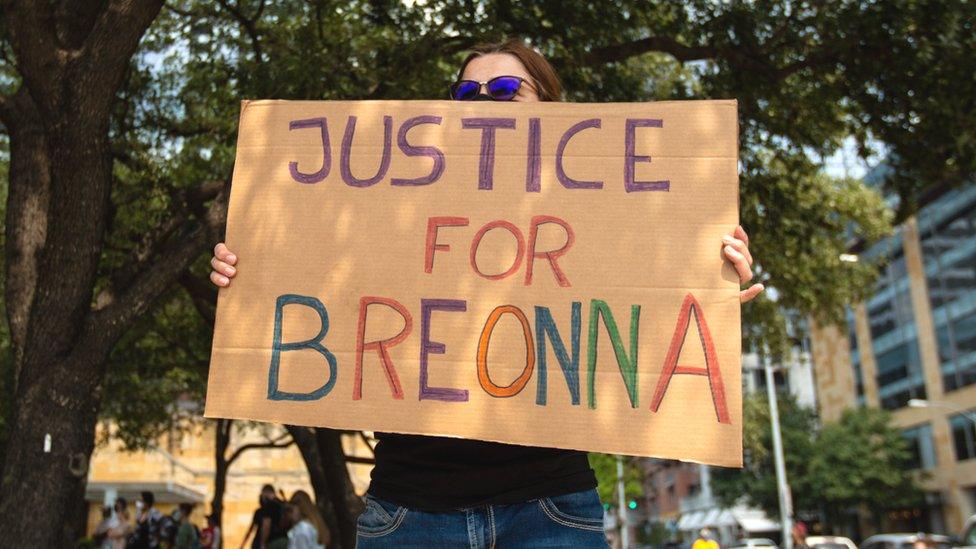
- Published23 September 2020
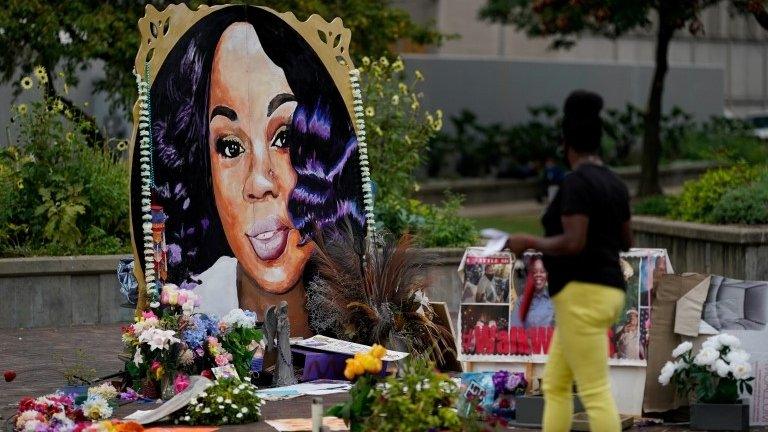
- Published15 September 2020
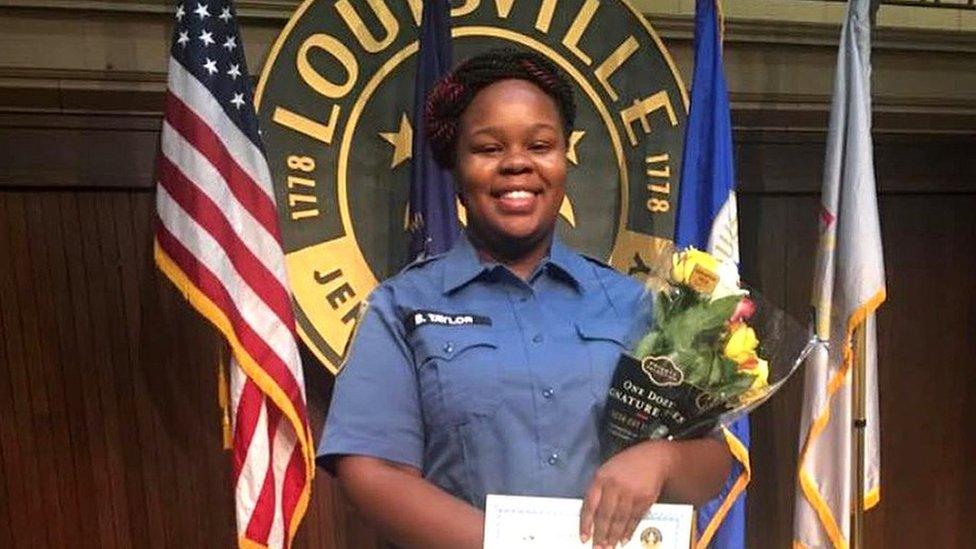
- Published8 October 2020

- Published22 April 2021
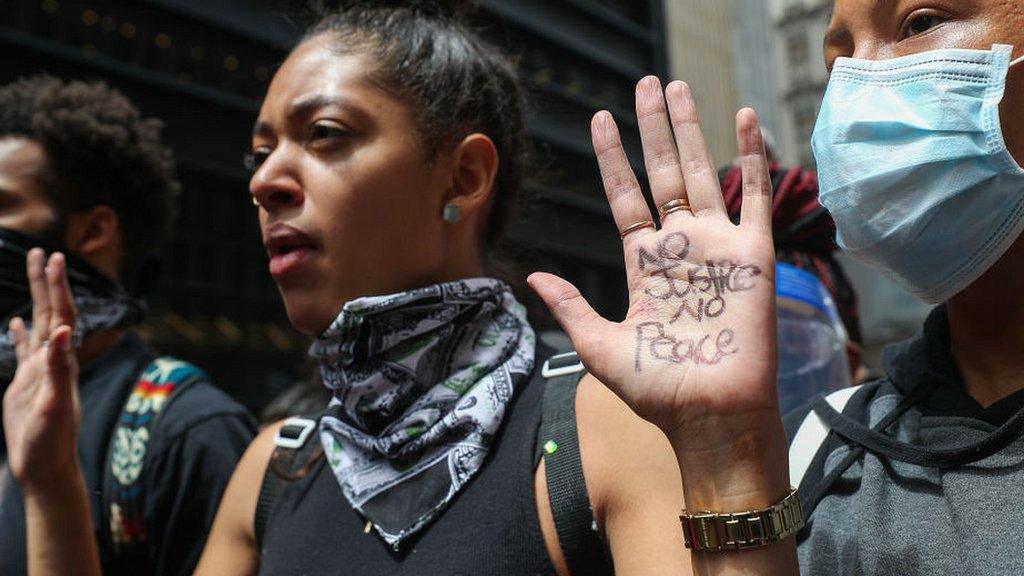
- Published7 June 2020
